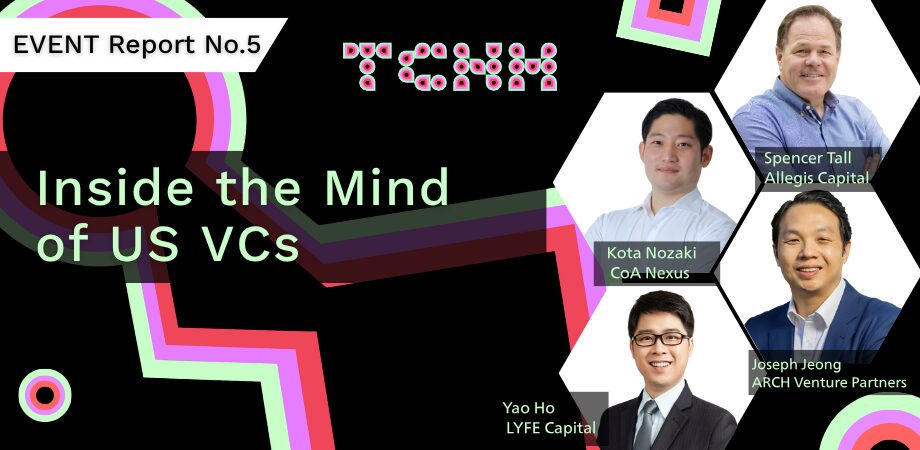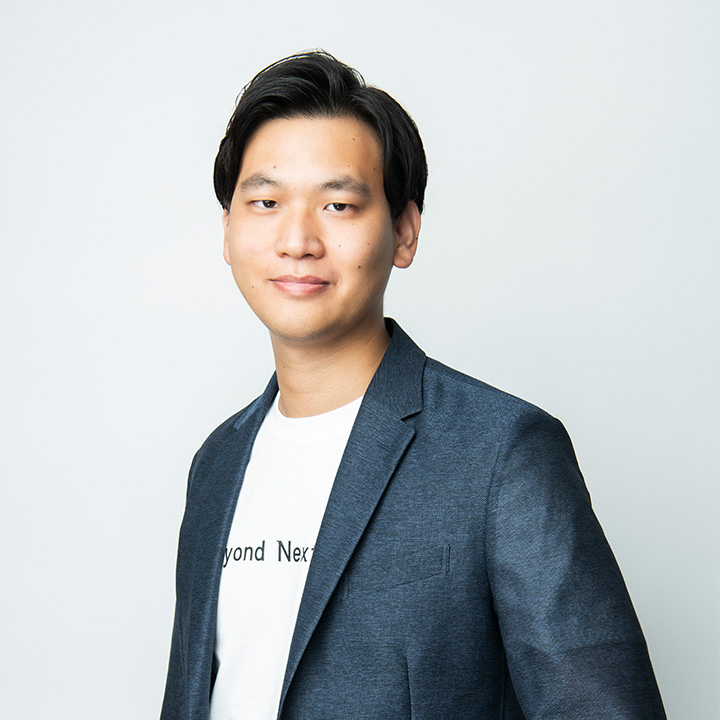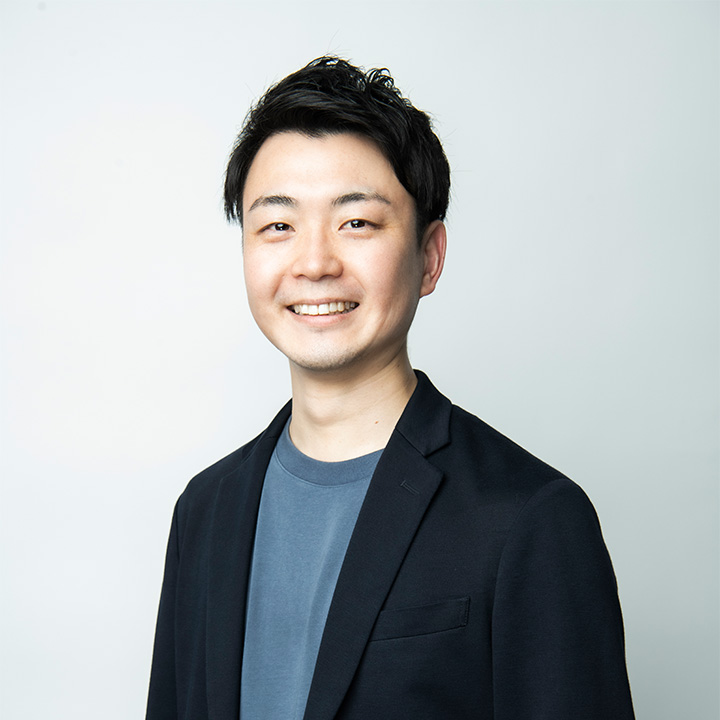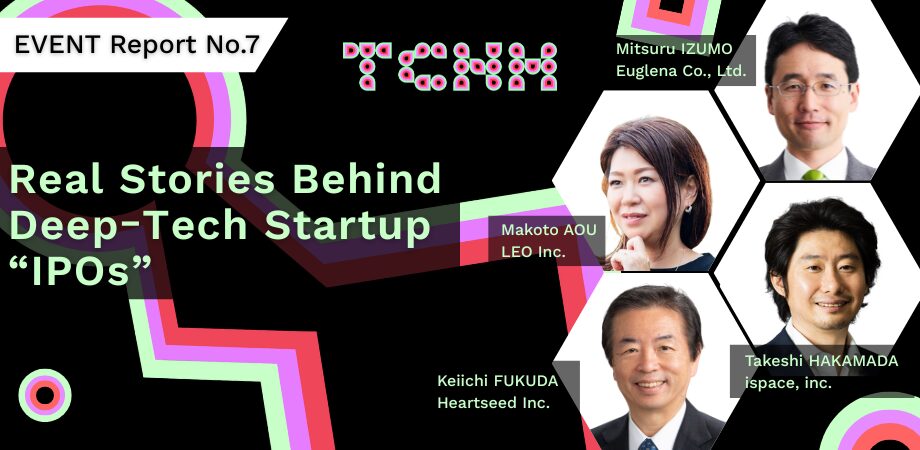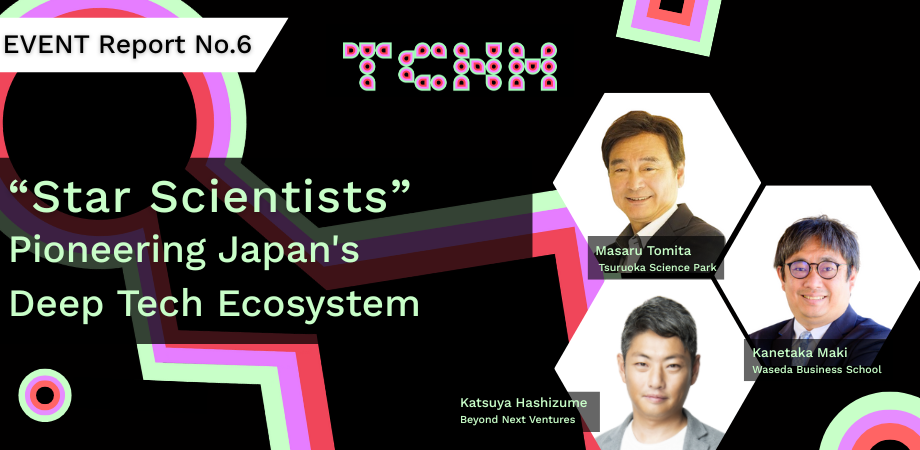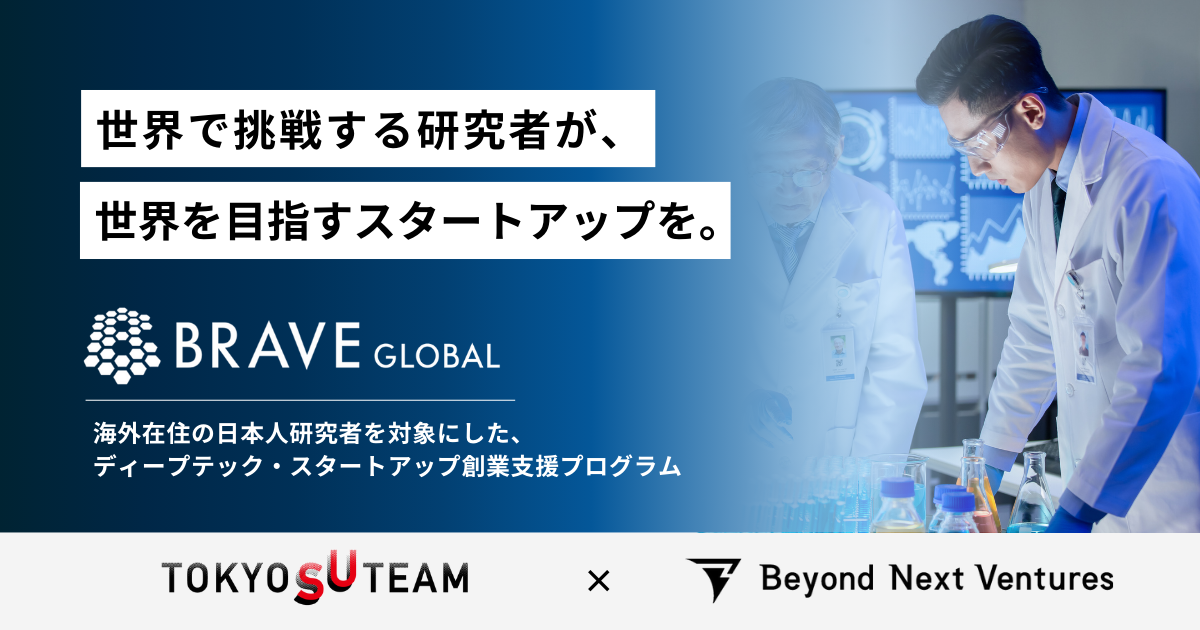Beyond Next Ventures co-hosted the TECHNIUM Global Conference, Japan’s first international conference dedicated to deep-tech on May 7-8. It brought together leading players driving Japan’s deep-tech startup ecosystem and featured a wide range of insightful sessions.
As this conference was invitation-only and received a great deal of attention, we are excited to share some highlights from the sessions for those who were unable to attend in person.
In this event report, we will introduce a session titled, “Inside the Mind of US VCs: What They Look For In Japan,” which was held during the conference.
Session Title:
Inside the Mind of US VCs: What They Look For In Japan
Moderator:
Kota Nozaki (Founder & CEO, CoA Nexus)
Speakers:
- Spencer Tall (Managing Director, Allegis Capital)
- Yao Ho (Managing Director, LYFE Capital)
- Joseph Jeong (Venture Partner, ARCH Venture Partners)
Contents
Japanese Founders Urged to Venture into US For Scale
Spencer Tall opened the session by urging Japanese startups to be “open minded” and establish their headquarters in the world’s largest economy. “There is more liquidity in the U.S. market and there is a greater chance to grow there,” he said, adding the U.S. must be part of the founders’ plan to be able to become global players.
Giving an example of Israeli startups that often establish headquarters in the U.S., Spencer said “it’s easier for us to invest in them” because as soon as they get funding, they are willing to build out the U.S. market for sales and marketing. This in turn provides those ventures an access to mergers and acquisitions opportunities, as well as the U.S. market, Tall asserted.
Echoing Tall’s perspective Yao Ho said “the access to capital, people and ecosystem (in the U.S.) is remarkable.” Joseph Jeong too joined the duo saying, “From day one, it has to be a global company.”
Networking Is The Mantra For Success
When moderator Kota Nozaki highlighted the difficulty that Japanese founders face to access U.S. VCs, Ho reminded about the value of building a strong network.
“What it really comes down to is finding a supporting network. There are people (who function like) ‘super hubs’ and could introduce you to almost anyone that you need,” he said. Having introductions from fellow investors helps in building an “ecosystem.”
Reflecting on his long-term experience, Tall shared how in 30 years his firm has never invested in a company that had sent them a cold e-mail as startups require credibility. “It’s always been an introduction from another founder, one of our CEOs, or some advisory person that we made money with,” he said adding, the list of advisors matters for entrepreneurs who haven’t become famous as yet.
And when faced with potential tax-related complications in the U.S., then just seeking insights from predecessors is the way. “There are Japanese VCs who have flipped their companies (to the US.) Maybe you should talk to them and there are ways to do it.”
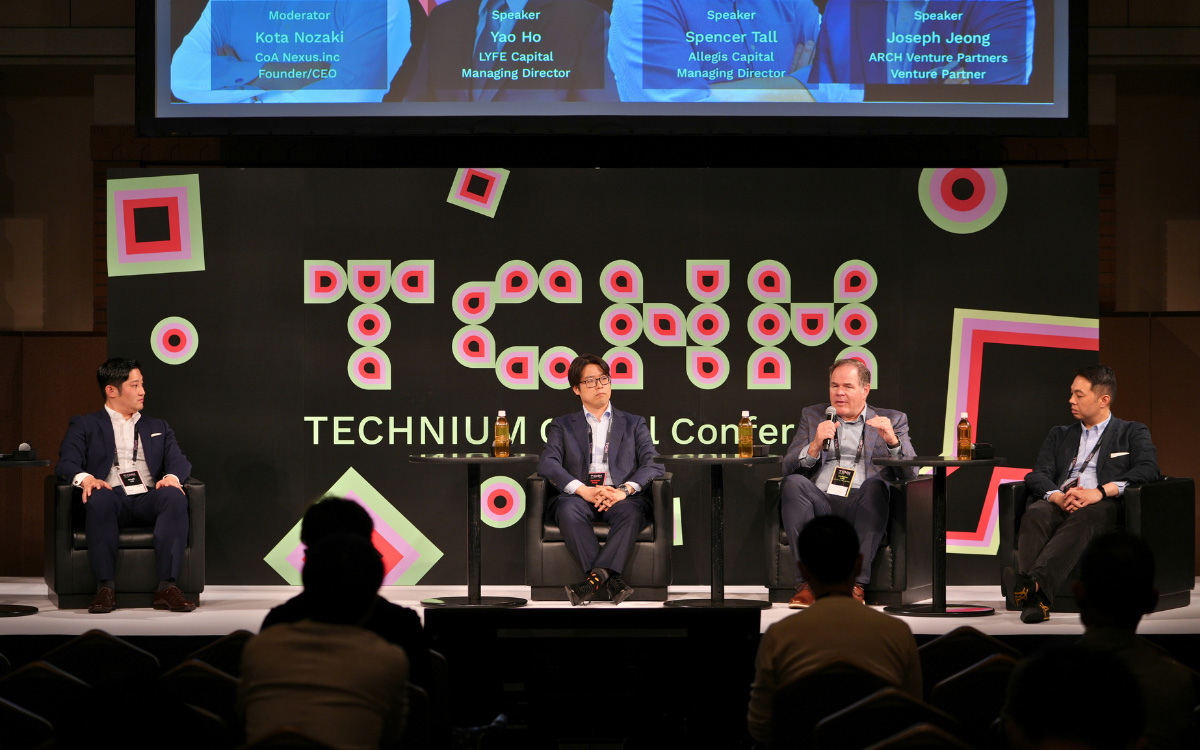
Challenges and Opportunities for Japanese Startups
Nozaki pointed out that Japanese startups don’t pitch enough to the U.S. VCs and it’s their mindset that hinders their global growth. “When I go to join some startup conferences on the West Coast. There are some founders from Asia, most of these are from Korea or China, but I don’t see many Japanese founders.”
Jeong meanwhile said a comfortable climate back home may be one of the reasons that Japanese startups don’t go out of their way to become global. “Japan has a fairly high GDP and a large amount of overseas market, so they don’t feel a need to go overseas and can be very successful in Japan.”
Tall attributed that restraint to a “large home market in Japan.” Again putting Israel against Japan, he said that “Israel is a tiny little country with a very small home market, but they have an ecosystem to be able to do a startup and a mindset of having their first sales outside of their country.”
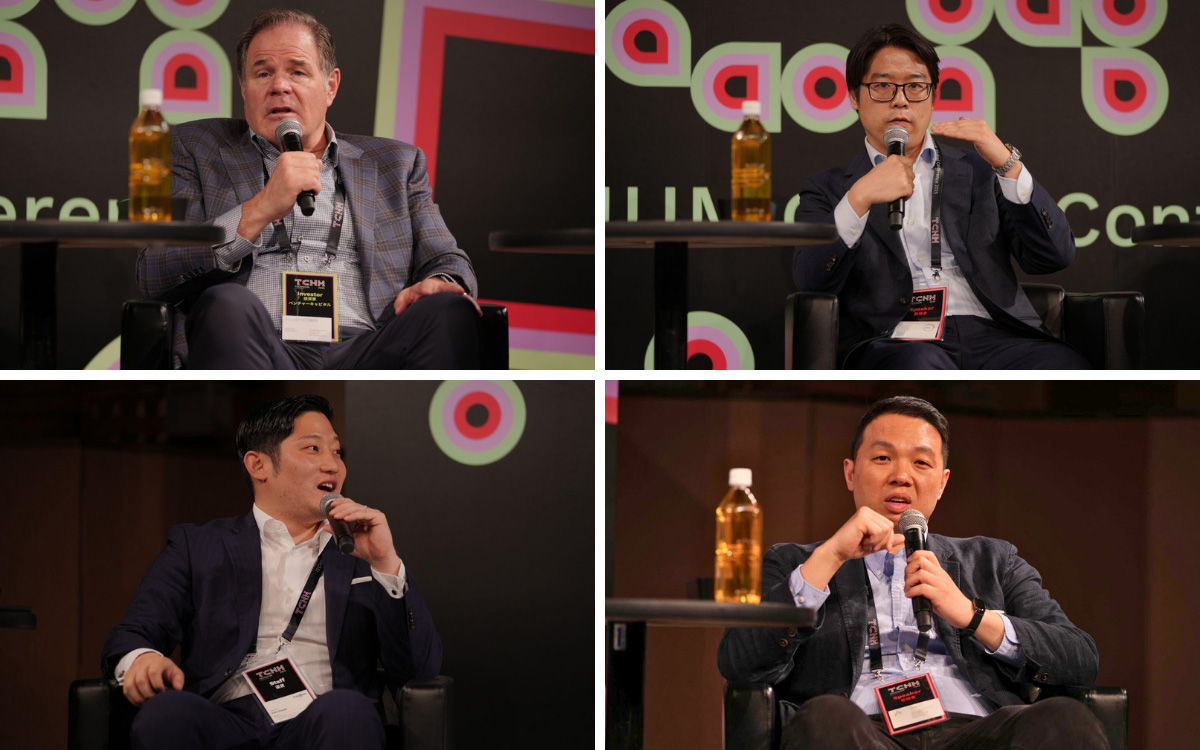
Message to Founders: Stay Hungry, Stay Global
Toward the closing, Nozaki asked what Japanese startups must do to attract U.S. VCs.
Tall answered, “If entrepreneurs in Japan have a product market fit and that product is not yet in the United States, then that’s the most interesting start-up possible for someone like me.” VCs are not that smart people, “we’re pattern recognition people” he said drawing laughter from the crowd.
Luring Japanese startups to the U.S. he commented “the tax regulatory situation in Japan is not set up that well for start-ups,” as opposed to the U.S.
Ho said he wishes to see drive, a growth mindset, along with a global perspective in startups from Japan, and that language barrier is of much less importance. “I think it really doesn’t matter if a team is built of Japanese people, Chinese or Koreans. What matters is the person’s desire to learn more and this hunger.”
Jeong concluded, founders need to question what they want for their company. “A lot of people have a tendency of claiming the ownership of a technology” and that hinders the growth of that technology.
From this session, it was clear that Japanese startups need to have a global mindset, aggressive approach and credibility to launch in the U.S., and founders must always go back to their predecessors if they find themselves lost on the way.
The conference also provided numerous practical networking opportunities, bringing together researchers, startups, investors, and corporations. Over 1,000 business meetings took place at the dedicated matching booths, contributing to the vibrant energy of the event.
TECHNIUM Global Conference official website: https://tcnm-gc.com/#EN

